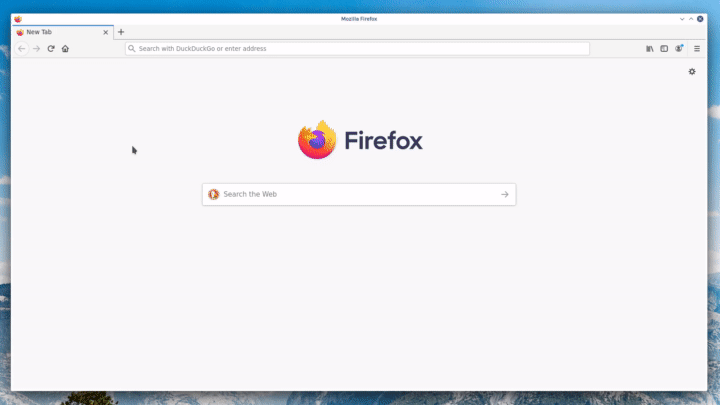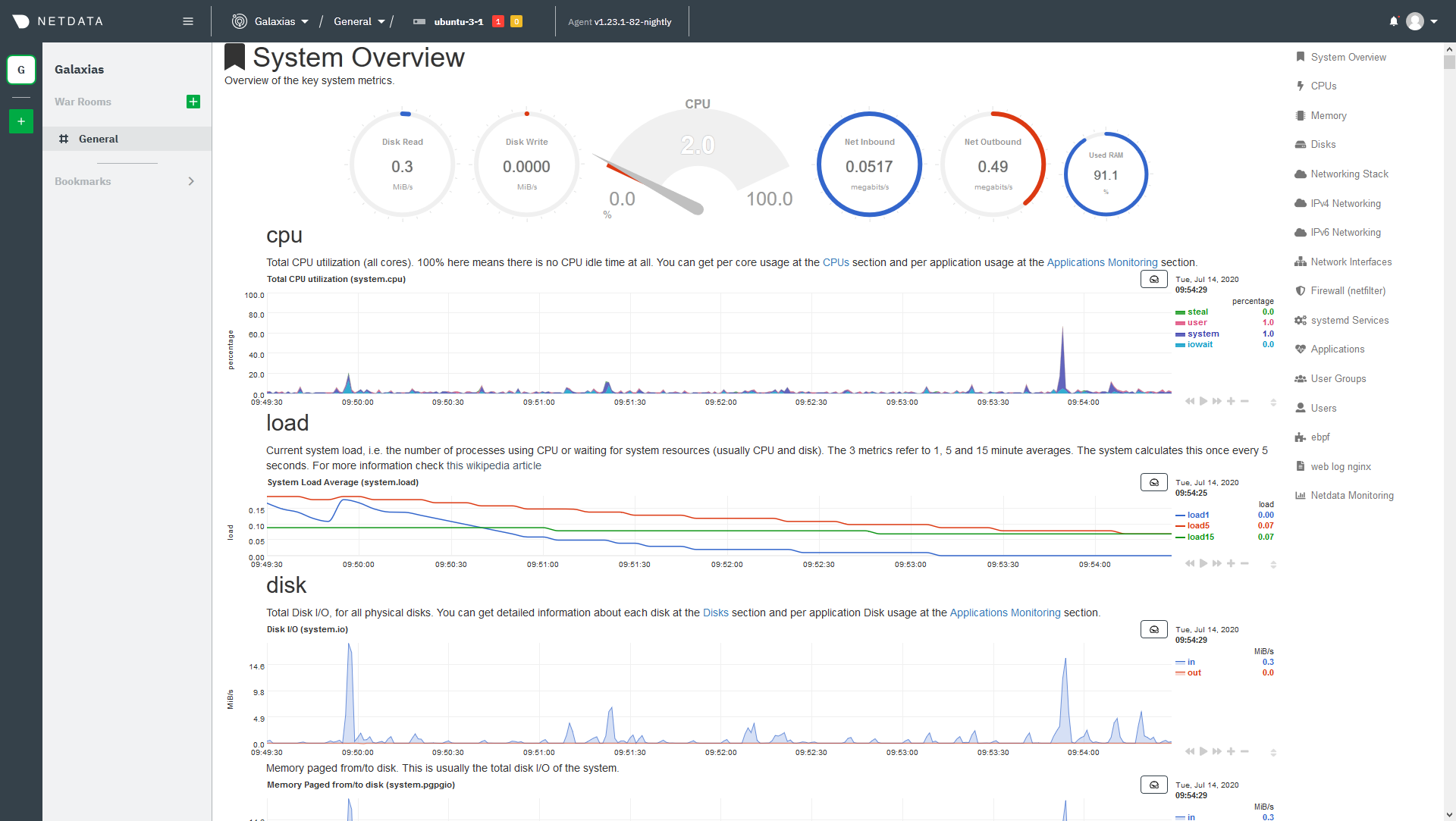diff options
Diffstat (limited to 'docs/quickstart/single-node.md')
| -rw-r--r-- | docs/quickstart/single-node.md | 96 |
1 files changed, 96 insertions, 0 deletions
diff --git a/docs/quickstart/single-node.md b/docs/quickstart/single-node.md new file mode 100644 index 000000000..77656af26 --- /dev/null +++ b/docs/quickstart/single-node.md @@ -0,0 +1,96 @@ +<!-- +title: "Single-node monitoring with Netdata" +sidebar_label: "Single-node monitoring" +description: "Learn dashboard basics, configuring your nodes, and collecting metrics from applications to create a powerful single-node monitoring tool." +custom_edit_url: https://github.com/netdata/netdata/edit/master/docs/quickstart/single-node.md +--> + +# Single-node monitoring with Netdata + +Because it's free, open-source, and requires only 1% CPU utilization to collect thousands of metrics every second, +Netdata is a superb single-node monitoring tool. + +In this quickstart guide, you'll learn how to access your single node's metrics through dashboards, configure your node +to your liking, and make sure the Netdata Agent is collecting metrics from the applications or containers you're running +on your node. + +> This quickstart assumes you have installed the Netdata Agent on your node. If you haven't yet, see the [_Get Netdata_ +> doc](/docs/get/README.md) for details on installation. In addition, this quickstart mentions features available only +> through Netdata Cloud, which requires you to [claim your node](/docs/get/README.md#claim-your-node-on-netdata-cloud). + +## See your node's metrics + +To see your node's real-time metrics, you need to access its dashboard. You can either view the local dashboard, which +runs on the node itself, or see the dashboard through Netdata Cloud. Both methods feature real-time, interactive, and +synchronized charts, with the same metrics, and use the same UI. + +The primary difference is that Netdata Cloud also has a few extra features, like creating new dashboards using a +drag-and-drop editor, that enhance your monitoring and troubleshooting experience. + +To see your node's local dashboard, open up your web browser of choice and navigate to `http://NODE:19999`, replacing +`NODE` with the IP address or hostname of your Agent. Hit `Enter`. + + + +To see a node's dashboard in Netdata Cloud, [sign in](https://app.netdata.cloud). From the **Nodes** view in your +**General** War Room, click on the hostname of your node to access its dashboard through Netdata Cloud. + + + +Once you've decided which dashboard you prefer, learn about [interacting with dashboards and +charts](/docs/visualize/interact-dashboards-charts.md) to get the most from Netdata's real-time metrics. + +## Configure your node + +The Netdata Agent is highly configurable so that you can match its behavior to your node. You will find most +configuration options in the `netdata.conf` file, which is typically at `/etc/netdata/netdata.conf`. The best way to +edit this file is using the `edit-config` script, which ensures updates to the Netdata Agent do not overwrite your +changes. For example: + +```bash +cd /etc/netdata +sudo ./edit-config netdata.conf +``` + +Our [configuration basics doc](/docs/configure/nodes.md) contains more information about `netdata.conf`, `edit-config`, +along with simple examples to get you familiar with editing your node's configuration. + +After you've learned the basics, you should [secure your node](/docs/configure/secure-nodes.md) using one of our +recommended methods. These security best practices ensure no untrusted parties gain access to your dashboard or its +metrics. + +## Collect metrics from your system and applications + +Netdata has [300+ pre-installed collectors](/collectors/COLLECTORS.md) that gather thousands of metrics with zero +configuration. Collectors search your node in default locations and ports to find running applications and gather as +many metrics as possible without you having to configure them individually. + +These metrics enrich both the local and Netdata Cloud dashboards. + +Most collectors work without configuration, but you should read up on [how collectors +work](/docs/collect/how-collectors-work.md) and [how to enable/configure](/docs/collect/enable-configure.md) them. + +In addition, find detailed information about which [system](/docs/collect/system-metrics.md), +[container](/docs/collect/container-metrics.md), and [application](/docs/collect/application-metrics.md) metrics you can +collect from across your infrastructure with Netdata. + +## What's next? + +Netdata has many features that help you monitor the health of your node and troubleshoot complex performance problems. +Once you understand configuration, and are certain Netdata is collecting all the important metrics from your node, try +out some of Netdata's other visualization and health monitoring features: + +- [Build new dashboards](/docs/visualize/create-dashboards.md) to put disparate but relevant metrics onto a single + interface. +- [Create new alarms](/docs/monitor/configure-alarms.md), or tweak some of the pre-configured alarms, to stay on top + of anomalies. +- [Enable notifications](/docs/monitor/enable-notifications.md) to Slack, PagerDuty, email, and 30+ other services. +- [Change how long your node stores metrics](/docs/store/change-metrics-storage.md) based on how many metrics it + collects, your preferred retention period, and the resources you want to dedicate toward long-term metrics + retention. +- [Export metrics](/docs/export/external-databases.md) to an external time-series database to use Netdata alongside + other monitoring and troubleshooting tools. + +[](<>) |
